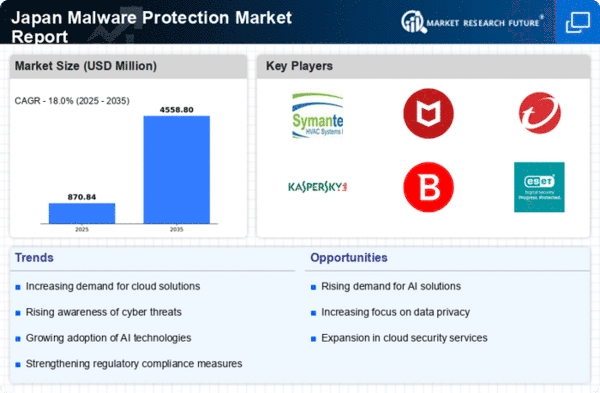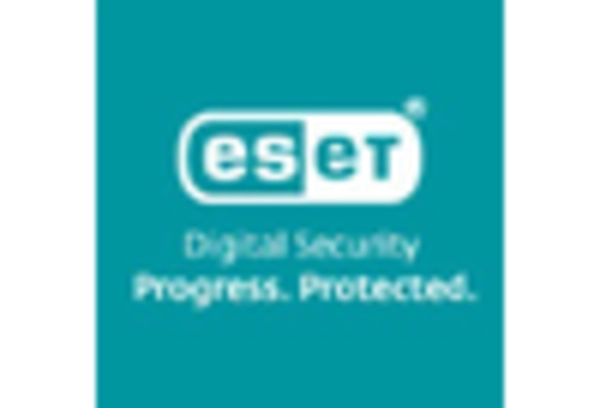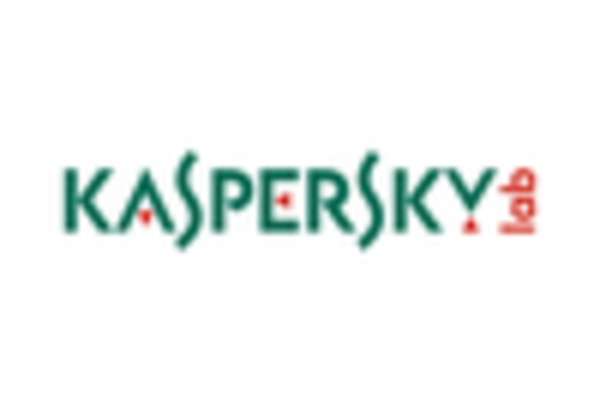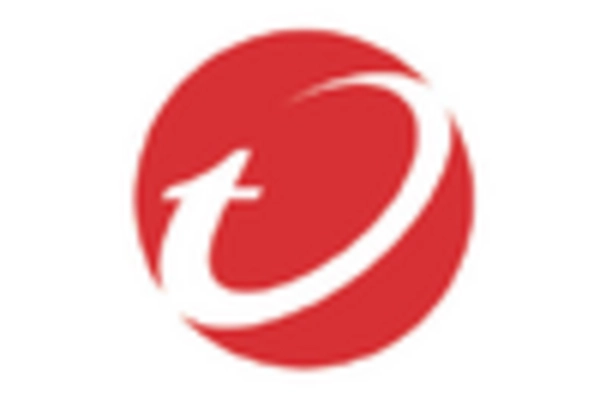Evolving Regulatory Landscape
The evolving regulatory landscape in Japan is significantly impacting the malware protection market. With the introduction of stricter data protection laws and regulations, organizations are compelled to enhance their cybersecurity measures. Compliance with regulations such as the Act on the Protection of Personal Information (APPI) necessitates the implementation of robust malware protection solutions to avoid hefty fines and legal repercussions. As of 2025, it is estimated that compliance-related investments in cybersecurity will account for nearly 30% of total IT security budgets in Japan. This regulatory pressure is likely to drive the demand for advanced malware protection technologies.
Rising Incidence of Remote Work
The shift towards remote work in Japan has created new vulnerabilities that malware can exploit. As employees access corporate networks from various locations and devices, the need for comprehensive malware protection solutions has intensified. Organizations are increasingly adopting endpoint security measures to protect remote workers from malware threats. Reports indicate that the remote work trend has led to a 40% increase in demand for endpoint protection solutions in the malware protection market. This shift suggests that as remote work continues to be a prevalent model, the malware protection market will likely experience sustained growth.
Increased Digital Transformation
The ongoing digital transformation across various sectors in Japan is a primary driver for the malware protection market. As businesses increasingly adopt cloud computing, IoT devices, and mobile applications, the attack surface for cyber threats expands. This transformation has led to a heightened demand for robust malware protection solutions to safeguard sensitive data and maintain operational integrity. In 2025, the market for cybersecurity in Japan is projected to reach approximately $10 billion, with malware protection being a significant component. Organizations are investing in advanced security measures to mitigate risks associated with digitalization, thereby propelling the malware protection market forward.
Growing Awareness of Cybersecurity Risks
There is a notable increase in awareness regarding cybersecurity risks among Japanese enterprises and consumers. This heightened awareness is largely driven by the rise in high-profile cyberattacks and data breaches that have occurred in recent years. As organizations recognize the potential financial and reputational damage caused by malware incidents, they are prioritizing investments in malware protection solutions. Surveys indicate that over 70% of businesses in Japan consider cybersecurity a top priority, which directly influences the growth of the malware protection market. This trend suggests that as awareness continues to grow, so too will the demand for effective malware protection.
Technological Advancements in Cybersecurity
Technological advancements in cybersecurity are driving innovation within the malware protection market. The integration of machine learning and artificial intelligence into malware detection systems enhances the ability to identify and neutralize threats in real-time. In Japan, companies are increasingly investing in next-generation malware protection solutions that leverage these technologies. It is projected that by 2026, the market for AI-driven cybersecurity solutions will grow by over 25%. This trend indicates that as technology evolves, the malware protection market will adapt, leading to more sophisticated and effective protection mechanisms.
















